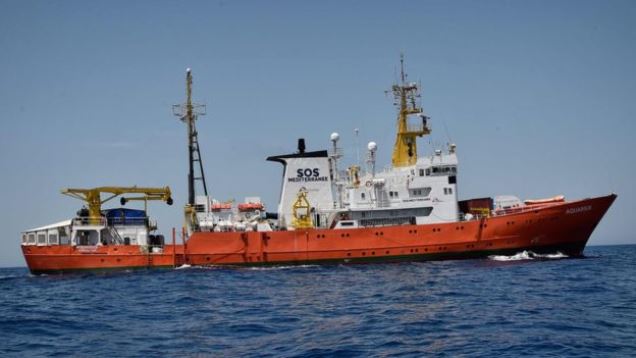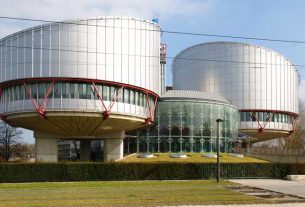Italy’s right-wing government on Tuesday declared a six-month national state of emergency to help it cope with a surge in migrants arriving on the country’s southern shores.
State TV said a special commissioner was expected to be named. Initial funding of 5 million euros (nearly $5.5 million) was also approved as part of the measure approved by Premier Giorgia Meloni and her Cabinet.
In a statement after the Cabinet meeting, the government said the state of emergency was deemed necessary “to carry out with urgency extraordinary measures to reduce congestion” at an overwhelmed migrant shelter on a tiny Italian island in the Mediterranean.
Also needed are “new structures, suitable both for sheltering as well as the processing and repatriation of migrants who don’t have the requisites to stay” in Italy, the government statement said.
During the COVID-19 pandemic Italy’s governing coalitions also imposed a state of emergency, enabling the Cabinet to mandate many coping measures by decree, temporarily bypassing the usually long parliamentary process for funding and regulations.
“Let’s be clear, this doesn’t resolve the problem, whose solution is tied to a mindful and responsible intervention of the European Union,” Civil Protection and Sea Policies Minister Nello Musumeci was quoted as saying by the Italian news agency ANSA.
Largely unsuccessfully, Meloni’s government, like several others before, has pressed for more solidarity from fellow EU countries, which often don’t make good on pledges to accept some of the asylum-seekers hoping to find relatives or work in northern Europe.
Since the start of this year, some 31,000 migrants, either rescued by Italian military boats or charity ships or reaching Italy without assistance, have disembarked, according to Interior Ministry figures. That’s nearly four times the roughly 8,000 for the same period in each of the two previous years.
The arrivals of migrants, who set out in unseaworthy vessels launched by smugglers from northern African shores, seem destined to swell. Early on Wednesday, a smugglers’ boat, crowded with some 700 passengers, was expected to pull into the port of Catania, a major city in eastern Sicily.
Italian coast guard boats had been escorting the distressed fishing vessel toward shore when a breakdown forced it to need towing, slowing its advance. The coast guard had already transferred some 100 of the passengers when rough seas made that operation too risky, and the decision was taken to leave the rest of the migrants aboard until the vessel could reach port.
On one recent day alone, 26 migrant boats, many of them without needing rescue, reached the Lampedusa, a tiny Italian island south of Sicily. The facility on Lampedusa which shelters migrants so they can be provisionally identified as a first step toward any asylum application, was reeling under the relentless stream of arrivals.
The shelter is meant to accommodate about 350-400 people, but in recent days, there were 3,000. Italy chartered empty commercial ferries to transfer hundreds of them to Sicily or the mainland.
On Tuesday, some 1,600 migrants were staying in the Lampedusa structure, and authorities were hoping for weather to improve so that by evening some 400 could be ferried off the island.
“There are many women with small children, plus there are unaccompanied minors,” the migrant center director, Lorena Tortorici, told Italian Sky TG24 TV. “We are in an emergency situation. The staff are trying to do what they can.”
The biggest number of migrants arriving so far this year are from Ivory Coast, followed by people from Guinea, Pakistan, Egypt, Tunisia and Bangladesh, according to the Interior Minister’s tally.
For years, most of the smugglers’ boats plying the dangerous central Mediterranean route set sail from western Libya. But recent months have seen many of the voyages start from eastern Libya or from Tunisia. __Daily Hurriyet





